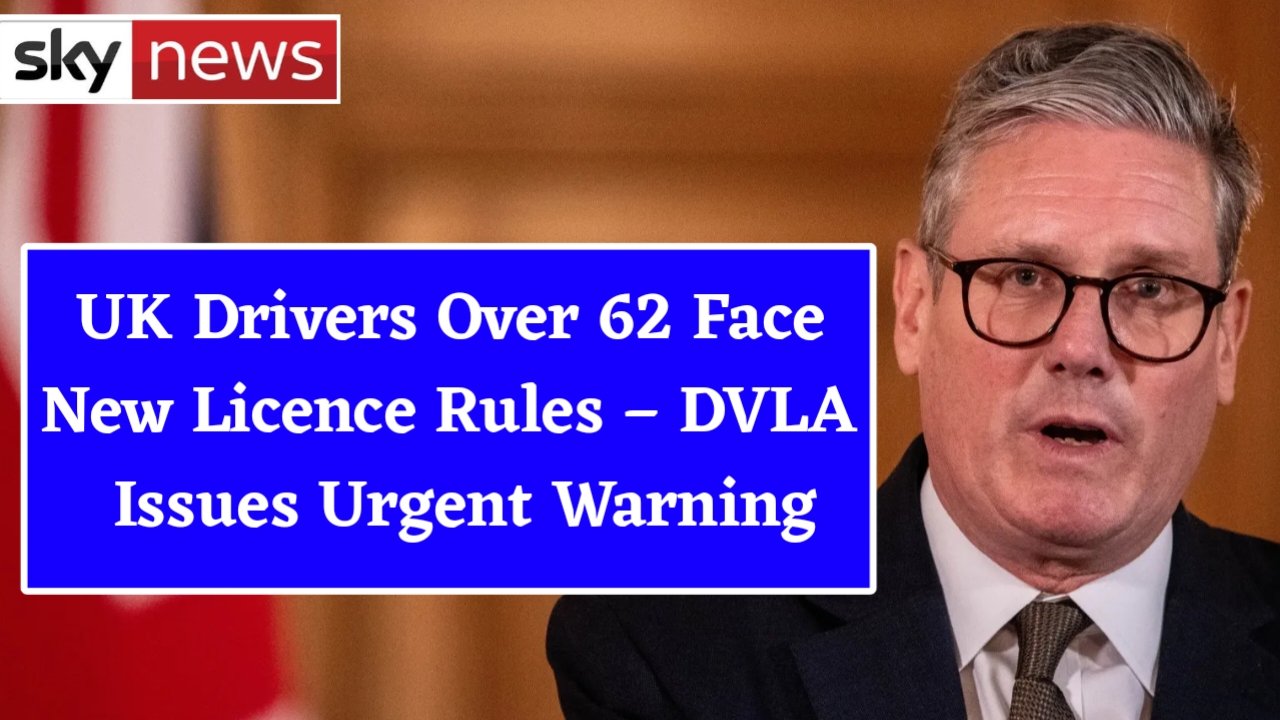The DVLA (Driver and Vehicle Licensing Agency) has recently issued an urgent warning for drivers in the United Kingdom who are aged 62 and above. This new announcement introduces updated rules and regulations regarding driving licences, and it is crucial for older drivers to understand the changes to avoid potential legal issues or penalties. With millions of drivers in the UK approaching or exceeding this age, staying informed has never been more important. The DVLA emphasizes that failure to comply with these new rules could lead to licence suspension, fines, or other consequences that could affect day-to-day life and mobility.
What the New Licence Rules Entail
The recently announced rules require all drivers over the age of 62 to undergo additional checks to ensure they remain medically fit to drive safely. This includes mandatory vision tests, updated medical declarations, and, in some cases, new renewal procedures that are more stringent than those applied to younger drivers. The DVLA has stressed that these measures are designed not to penalize drivers but to protect both the individual and other road users. Older drivers may face stricter reporting requirements for any health changes, such as heart conditions, diabetes, or neurological issues, which could impact driving ability.

The agency also clarified that the renewal period for licences may be shortened for drivers in this age group. While younger drivers typically enjoy a standard ten-year renewal cycle, older drivers may now need to renew every three years or as directed by the DVLA based on individual health assessments. The aim is to ensure that licences reflect the current health and capability of drivers, reducing the risk of accidents caused by sudden medical issues while on the road.
Who Is Affected by These Changes
These new rules specifically affect all UK drivers aged 62 and above, which includes millions of individuals who are currently active on the roads. Drivers holding a full UK driving licence should carefully review the DVLA communication to ensure they understand what documentation is required and by when. This is especially important for those who rely on driving for daily commuting, social activities, or essential errands, as missing a renewal deadline or failing to submit necessary medical information could lead to temporary suspension of driving privileges.
It is also important to note that these changes may impact family members, caregivers, or anyone assisting older drivers. Supporting older drivers in understanding and meeting these requirements will help ensure compliance and maintain safe driving practices. The DVLA has provided clear guidance on how to submit medical information, book appointments, and prepare for potential assessments, but it requires active participation from the drivers themselves.
Steps Drivers Should Take Immediately
For drivers over 62, it is essential to take immediate action to stay compliant with the new regulations. Firstly, review your current driving licence and check the expiry date. Secondly, gather all necessary medical records and ensure that any ongoing health conditions are properly documented. Thirdly, submit any required forms to the DVLA promptly to avoid delays or penalties.
The DVLA also recommends scheduling routine eye examinations and other relevant medical check-ups well in advance of licence renewal. Early preparation can prevent last-minute complications and ensure that drivers continue to enjoy safe and legal mobility. Additionally, staying informed about any updates or notifications from the DVLA is crucial, as the agency may adjust rules based on new health research or policy decisions.
Importance of Compliance
Failing to comply with these new licence rules can have serious consequences. Not only could it result in fines or legal penalties, but driving without a valid or compliant licence may also invalidate insurance coverage, leaving drivers financially and legally vulnerable in case of an accident. Beyond legal implications, these measures are designed to enhance road safety, reducing the risk of collisions involving older drivers.
UK authorities have stressed that the intention behind these rules is not to restrict mobility but to ensure that drivers are physically and mentally capable of handling the responsibilities of driving. Staying proactive and informed will allow older drivers to continue driving safely while remaining fully compliant with DVLA regulations.
Final Thoughts
The recent DVLA warning for UK drivers over 62 serves as a crucial reminder that age-specific regulations are evolving to prioritize safety on the roads. Older drivers should take the necessary steps to understand and comply with these new rules, including updating medical information, undergoing required checks, and renewing licences on time. By doing so, drivers not only safeguard themselves but also contribute to a safer driving environment for everyone in the UK. Staying vigilant, informed, and proactive is the key to ensuring uninterrupted and safe mobility in the years ahead.